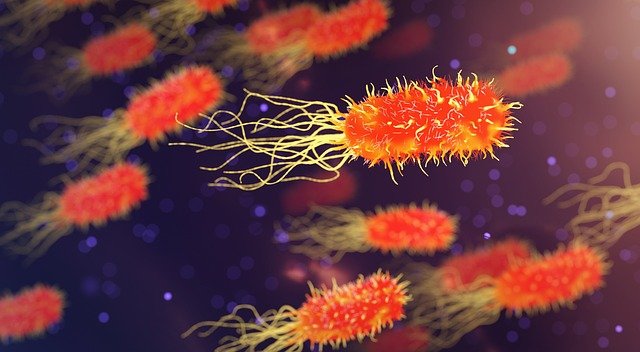Study identifies bacteria that may promote pancreatic cancer - Medical News Bulletin

A new study from the Karolinska Institutet in Sweden has discovered pancreatic bacteria that may promote the growth of pancreatic cancer. These bacteria live in the pancreas as part of the pancreatic microbiome.
Previous studies found that the pancreas fosters a microbiome of bacteria, like the microbiome found in the human gut.
Experts estimate that pancreatic cancer may overtake breast cancer to become the third leading cause of cancer-related death in the European Union.1 The 5-year survival rate for patients diagnosed with pancreatic cancer is 10%.2 Many patients have pancreatic cystic neoplasms, which are fluid-filled sacs within the pancreas. The most common types of pancreatic cystic neoplasms are intraductal papillary mucinous neoplasms, which line the pancreatic duct.
The study, published in Gut Microbes, isolated fluid extracted from pancreatic cystic neoplasms. These cysts were surgically removed from individuals with pancreatic tumours; some tumours proved to be cancerous. The cystic fluid was analyzed for bacterial growth.
For those patients with pancreatic cancer, their cystic fluid contained more than one type of bacteria. The most common type of bacteria belonged to the Gammaproteobacteria and Bacilli families of bacteria.3
Antibiotics were tested on these bacteria "in vitro" – in the lab. Most of the bacteria extracted were resistant to antibiotics. This finding may be problematic if the bacteria are found to promote cancer.
Pancreatic bacteria can survive within healthy and cancerous cells
Both healthy and cancerous pancreatic cells were exposed to the pancreatic bacterial strains extracted. In both healthy and cancerous cells, certain strains of bacteria were able to survive within the cells. These findings suggest that these bacteria, if dangerous, can thrive within pancreatic cells and potentially cause further damage.3
Pancreatic bacteria can damage cell DNA
Healthy and cancerous pancreatic cells were exposed to pancreatic bacteria in the lab. Some bacterial strains including Granulicatella adiacens H1 damaged cell DNA and caused cell death.3 DNA damage can lead to mutation, which is the first step required to form a cancerous cell.
How bacteria get into the pancreas is unknown
Experts are still unsure how the pancreatic microbiome is established. They assume the bacteria is derived from the gut microbiome, but how the bacteria may migrate into the pancreas remains unknown. However, the important finding from this study is that pancreatic bacteria could work against external cancer treatments.
The study noted, "Our experimental data provide the first firm evidence that pancreatic cyst fluid-derived viable bacteria are capable of intra-cellular survival and causing DNA damage in human pancreatic cells in vitro".3
These findings may help optimize pancreatic cancer treatments. Particularly, Dr. Asif Halimi, co-author of the study and doctoral student remarked, ""It would, for instance, be relevant to be able to screen patients [intraductal papillary mucinous neoplasms] for this type of bacteria. We've discussed the possibility of introducing a local antibiotic treatment in conjunction with, for example, an endoscopic examination or treatment. This would reduce the risk of bacterial infection and prevent future problems."4
Researchers have moved on to examine whether DNA damage caused by these pancreatic bacteria is from the bacteria themselves or substances they produce.
References
- Mizrahi, J.D. et al. (2020). Pancreatic cancer. The Lancet; 395(10242): P2008-P2020. Doi: 10,1016/S0140-6736(20)30974-0.
- Bray, F. et al. (2018). Global cancer statistics 2018: GLOBOCAN estimates of incidence and mortality worldwide for 36 cancers in 185 countries. CA: A Cancer Journal for Clinicians; 68(6): 394-424. Doi: 10.3322/caac.21492.
- Halimi, A. et al. (2021). Isolation of pancreatic microbiota from cystic precursors of pancreatic cancer with intracellular growth and DNA damaging properties. Gut Microbes; 13(1). Doi: 10.1080/19490976.2021.1983101.
- "New findings on bacteria that increase risk of pancreatic cancer". (2021). EurekAlert! Accessed Dec. 3, 2021. Retrieved from https://www.eurekalert.org/news-releases/935822.
- Image by Arek Socha from Pixabay
Comments
Post a Comment